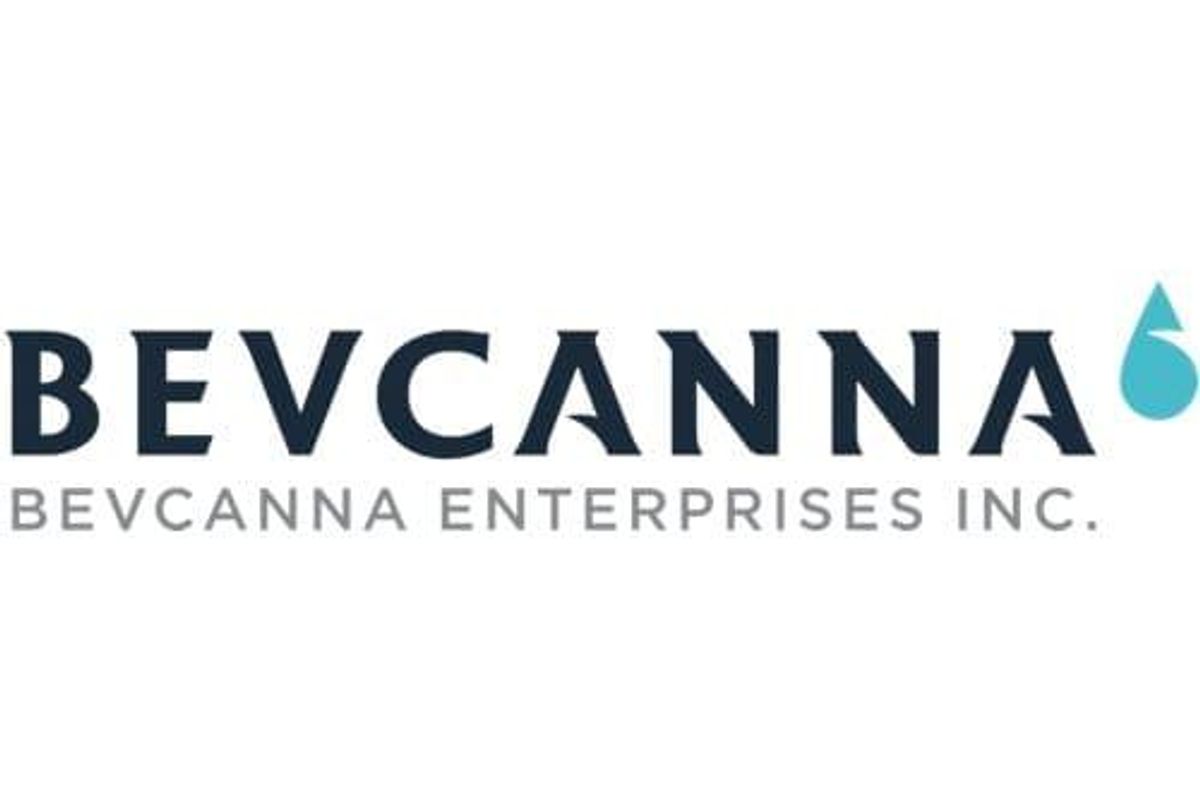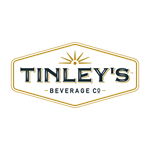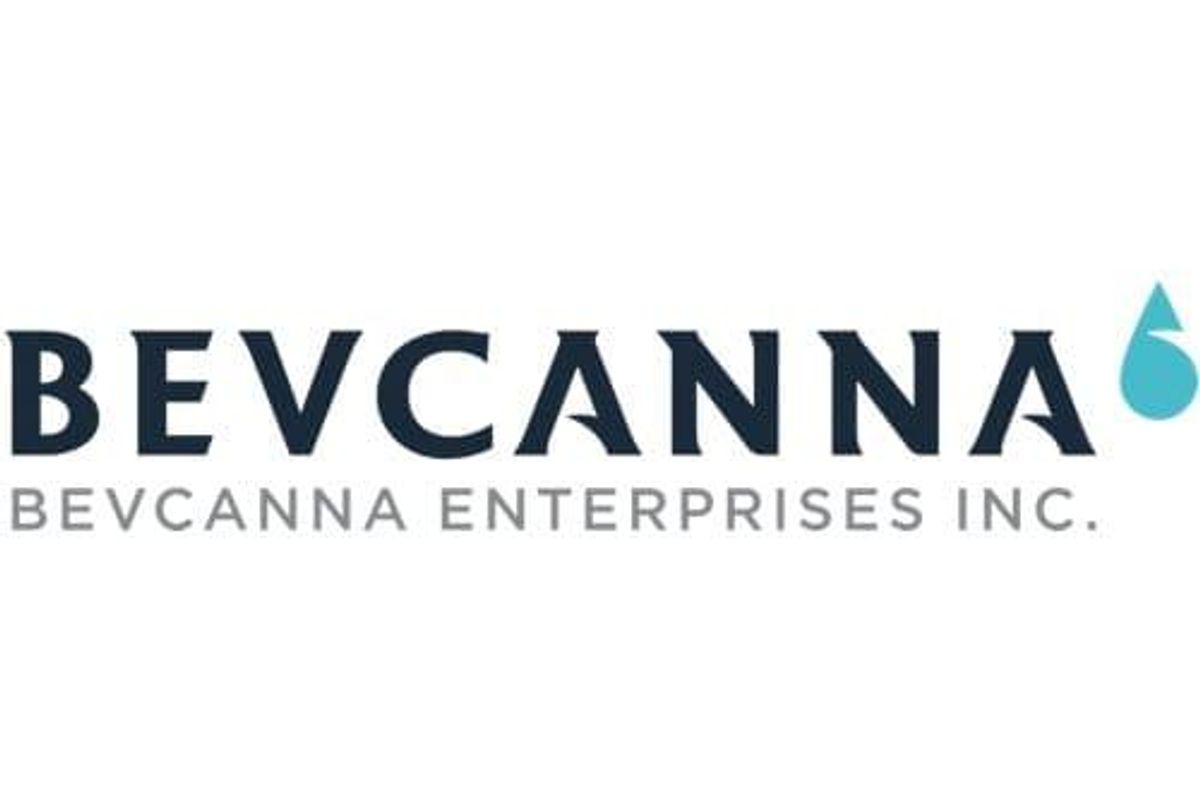
The Tinley Beverage Company Inc. (CSE:TNY, OTC:TNYBF) ("Tinley's") is pleased to announce it has signed an agreement ("Agreement") with BevCanna Enterprises ("BevCanna") (collectively the "Companies") to produce Tinleys™ Classics, the Canadian versions of Tinley's award-winning, California-produced "Tinley's™ Tonics" cannabis beverages. Tinley's other product family, "Tinleys™ ‘27", will continue to be produced at Peak Processing Solutions ("Peak") in Ontario. The Company is also pleased to report updates on the much-anticipated production at Peak.
Agreement With BevCanna to Produce "Tinleys™ Classics" Cannabis Beverages in Canada
BevCanna will produce and distribute the full line of Tinley's ready-to-drink, adult beverage-inspired sparkling Tinleys Classics, Canadian versions of Tinley's Tonics, currently available in California. The line includes the Moscow Mule-inspired Tinley's™ Tonics High Horse™, winner of First Place at California's prestigious Emerald Cup, the world's largest cannabis competition. BevCanna will also produce Tinley's blue agave & lime-inspired Stone Daisy, the juniper berry & lime-inspired Juniper Sky and the blue agave, grapefruit & lime-inspired Mystic Dove. The beverages will be modified slightly for the Canadian market to reflect Canadian consumer tastes, formulations, packaging, and regulatory requirements. As in California, the award-winning beverages will be offered in 12 fl. oz bottles, each containing a micro-dose of THC to provide a light effect comparable to a single adult beverage. Made with premium botanicals and non-alcoholic flavors often found in national-brand spirits, along with non-cannabis-derived botanical terpenes blended to match the Pineapple Jack strain, the beverages are vegan and gluten-free. They're also crafted with Vertosa cannabis emulsion technology, combined with Tinley's unique terpene infusion methodology, which together are designed to accelerate on-set and provide a full-flower, euphoric effect reminiscent of the Pineapple Jacks sativa strain.
Tinley's is employing BevCanna's white-label partnership model for its Canadian production and distribution. The model allows non-licensed partners to enter the Canadian cannabis market seamlessly and in a compliant manner. Tinley's will leverage BevCanna's extensive experience in producing beverages at scale, as well as its Sales License partnership for distribution to provincial buying groups. Tinley's has committed to annual MOQs (minimum order quantities) as part of this white-label agreement. BevCanna is now in full commercial production, with imminent delivery for various clients to provincial distribution boards, including the Ontario Cannabis store, the largest distributor of cannabis products in Canada.
Great North Distribution will sell the Tinleys™ products throughout Canada. Great North is Canada's first national sales broker for legalized adult-use cannabis. Established by the owners of Southern Glazer's Wine & Spirits, the world's preeminent distributor for beverage alcohol, Great North Distributors has reach across every province in Canada, with established relationships and expertise in working with Provincially-owned and operated retailers and private retailers alike.
"We're very excited to be selected as the Canadian manufacturing partner for Tinley's carbonated products," said Melise Panetta, President of BevCanna. "Their award-winning products have an exceptional following with consumers internationally, and we're eager to offer them to the Canadian market."
"We're very pleased to be adding another prominent white-label partner to our growing roster of leading brands," continued Ms. Panetta. "We're confident that we'll be able to bring Tinley's to market quickly, while also satisfying the strong demand we're seeing for additional full-service, white-label beverage manufacturing services."
"BevCanna has state of the art equipment that can uniquely accommodate the requirements of our complex formulation methodology and formats," said Ted Zittell, director of Tinley's. "We're excited to bring our products from California back to our home country and are confident these beverages will provide new, unique and compelling cannabis beverage options for Canadian consumers."
Production of "Tinley's™ '27" Cannabis Beverages in Canada
As previously disclosed, the NNCP's have been submitted for all 7 SKU's – the 4 RTD "Tinley'™ Classics" carbonated products (branded Tinley's ™ Tonics in the US) and the 3 "Tinleys™ ‘27" multi-serve products – and the 60-day periods for all 7 SKU's has elapsed without issue. As also disclosed, a Provincial board's formal request to purchase was unable to be fulfilled by the prescribed deadline due to challenges that arose with the Canadian bottle, which differs from the bottles used in California for these products. Over the course of moving manufacturing, additional data reviewed with Tinley's ingredient suppliers and contract manufacturer revealed issues that affect a broad number of cannabis beverages in the industry that employ comparable formulation methods. Tinley has now successfully tested modified formulations and has submitted revised NNCP's for all seven of its products. Tinley does not believe these modifications have any perceptible effect on the products' taste, rapid onset, uplifting Sativa effect or any other element of the product experience. Tinley's original formulations remain compliant and available for sale in California unchanged.
The relevant suppliers intend to use this new intellectual property to make analogous modifications to their various clients' formulations for compliant use in multiple jurisdictions throughout North America. The findings are expected to be published as case study research by the relevant ingredient suppliers. The work constitutes intellectual property that may be used by Tinley's in Canada as well as for its own and co-packing clients' products at its Long Beach facility.
The Company is now taking normal course steps towards commercial production, and endeavors to complete commercial production, pending successful confirmatory testing, at both Peak and BevCanna simultaneous to the 60-day NNCP period. Tinley cautions that Health Canada no longer deems amber bottles or other transparent bottles with most sleeve labels to be compliant; Tinley's therefore intends to source and work with bottles that differ from its California products as well as from previous prototypes of the Canadian products.
The Company's exclusive distributor for infused products, Great North Distributors, has indicated that several of the provincial cannabis boards across the country have given strong indicative interest in carrying Tinley's products, including the two that had made requests for the original products. Modified buying processes at boards across the country, including Ontario, expand the options for completing sales outside of traditional product calls where dispensary demand exists, as is the case for Tinley's products.
About The Tinley Beverage Company and Beckett's Tonics
The Tinley Beverage Company Inc. (OTC:TNYBF, CSE:TNY) manufactures the Beckett's Classics™ and Beckett's 27™ line of non-alcoholic, terpene-infused spirits and cocktails. Beckett's products are available in mainstream food, beverage, and specialty retailers, as well as online, across the United States as well as in grocery and specialty stores in Canada. Cannabis-infused versions of these products are offered under the Tinley's™ brand in licensed dispensaries and home delivery services throughout California, with expansion to Canada underway. Tinley's facility in Long Beach California contains some of the state's most versatile and technologically advanced cannabis-licensed beverage manufacturing equipment and provides manufacturing services for third-party brands in addition to Company-owned brands. Please visit www.drinkbecketts.com, www.drinktinley.com, Twitter and Instagram (@drinktinleys and @drinkbecketts) for recipes, product information and home delivery options.
About BevCanna Enterprises Inc.
BevCanna Enterprises Inc. (CSE:BEV, Q:BVNNF, FSE:7BC) is a diversified health & wellness beverage and natural products company. BevCanna develops and manufactures a range of alkaline, plant-based and cannabinoid beverages and supplements for both in-house brands and white-label clients. With decades of experience creating, manufacturing and distributing iconic brands that resonate with consumers on a global scale, the team demonstrates an expertise unmatched in the nutraceutical and cannabis-infused beverage categories. Based in British Columbia, Canada, BevCanna owns a pristine alkaline spring water aquifer and a world–class 40,000–square–foot, HACCP certified manufacturing facility, with a bottling capacity of up to 210M bottles annually. BevCanna's extensive distribution network includes more than 3,000 points of retail distribution through its market-leading TRACE brand, its Pure Therapy natural health and wellness e-commerce platform, its fully licensed Canadian cannabis manufacturing and distribution network, and a partnership with #1 U.S. cannabis beverage company Keef Brands.
Forward-Looking Statements
This news release contains forward-looking statements and information (collectively, "forward-looking statements") within the meaning of applicable Canadian securities laws. Forward-looking statements are statements and information that are not historical facts but instead include financial projections and estimates, statements regarding plans, goals, objectives, intentions and expectations with respect to the future business, operations, expansion to additional jurisdictions, , and phrases containing words such as "ongoing", "estimates", "expects", or the negative thereof or any other variations thereon or comparable terminology referring to future events or results, or that events or conditions "will", "may", "could", or "should" occur or be achieved, or comparable terminology referring to future events or results. Factors that could cause actual results to differ materially from any forward-looking statement include, but are not limited to, delays in obtaining or failures to obtain required governmental, environmental or other project approvals, political risks, uncertainties relating to the availability and costs of financing needed in the future, changes in equity markets, inflation, changes in exchange rates, fluctuations in commodity prices, delays in the development of projects and the other risks involved in the mineral exploration and development industry. Forward-looking statements are subject to significant risks and uncertainties, and other factors that could cause actual results to differ materially from expected results. Readers should not place undue reliance on forward-looking statements. These forward-looking statements are made as of the date hereof and the Company assumes no responsibility to update them or revise them to reflect new events or circumstances other than as required by law.
Products, formulations, and timelines outlined herein are subject to change at any time.
For further information, please contact:
The Tinley Beverage Company
Ted Zittell
(310) 507-9146
info@drinktinley.com
Twitter: @drinktinleys and @drinkbecketts
Instagram: @drinktinleys and @drinkbecketts
www.drinktinley.com
OTC:TNYBF CSE:TNY
BevCanna Enterprises Inc.
Bryce Allen
778-766-3744
bryce@BevCanna.com
A photo accompanying this announcement is available at https://www.globenewswire.com/NewsRoom/AttachmentNg/8f4ab2f8-f323-4422-bbdd-c1b47ad4a35b


